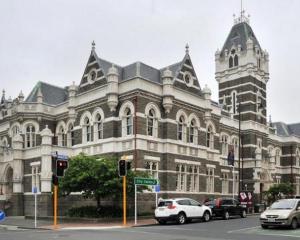Sixteen known gangs are operating in the South, police have revealed.
But the news came after initial hesitation from police to release the information, citing concern it could lead to "intergang rivalry" and an increase in serious offending.
That excuse, according to a leading New Zealand gang expert, was "nonsense".
The Otago Daily Times requested a range of information about gang activity in the Southern police district, including how many known gangs were present in the area.
It followed revelations that the number of gang members and prospects in Otago and Southland has risen 61% in less than two years.
In October 2017 there were 134 patched gang members or prospects in the district. By the end of August this year, that had increased to 217.
Police said gang members were peddling drug-related harm in the area. But they were less keen to say how many gangs were present in the district.
Citing privacy, prejudicing the ability to maintain the law, and the impact on the supply of information, police also initially withheld the information to prevent "the provocation of inter-gang rivalry, and an increase in serious offending".
Gang expert and University of Canterbury Prof Greg Newbold called that response "absolute nonsense".
He believed the reason for the initial refusal was that police were not exactly sure how many gangs there were.
"Patched gangs, they’ll know about some of them, but they won’t know about the homie gangs, the street gangs, the kids who hang about under a name.
"Nobody knows how many of them there are, because they come and go."
Following questions from the ODT about the reasoning, police admitted they had been wrong to withhold the information and apologised for the error.
There were 16 gangs known to be operating in the area, police said.
While exactly which gangs they are remains unclear, Otago Coastal Area prevention manager Inspector Wil Black previously said the Mongrel Mob was still the biggest gang in Dunedin "without a doubt", and it also had a strong base in Mataura.
But the city had a "splattering" of most gangs, including Black Power and the King Cobras.
Criminals deported from Australia had also been added to gang ranks, and brought with them more sophisticated operations and networks throughout New Zealand, Australia and Asia, he said.
Comments
Weak individuals.
Quite possibly, however, what, as a society, have we done to allow the prolific growth of gangs? For all those young people who become embroiled in that way of life, what, as their parents, teachers, mentors, have we done to them to feel they would be better off in joining and contributing to the gang lifestyle? Did we take away hope? Did we abuse them? Did we turn our backs on them when they needed us the most? If we're not careful, the impact will become yet greater for society. Punishment is at the very bottom of the cliff, how did they come to stand on the edge?
The government needs to give the police the power AND the resources to resolve this problem rather than focus on the comfort and rights of the prison population.
A related issue that is obvious from media coverage but never dealt with head on the the massive inconsistency in how gang members are treated by the judiciary once before the courts. Given the amount of money on the meth trade, there is massive potential for corruption in the judiciary. Nothing seems to have been be done to ensure this is not already entrenched.
Aha. The venal judge canard.











